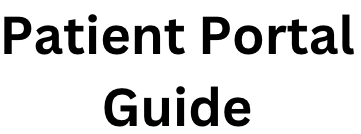Certainly! Here are some benefits and drawbacks of using patient portals:
Patient Portal Pros:
Patients may quickly and easily access their own health records, such as lab results, medical histories, and prescription information, via patient portals. Because of this convenience, patients may maintain an active role in their treatment.
Patient portals allow for private messages to be sent between patients and their healthcare professionals in a safe and timely manner. The ability of patients to ask questions, seek explanations, and receive responses facilitates effective and efficient communication between patients and their care teams.
Many online patient portals provide tools for making and managing appointments. Appointment requests, schedule views, and reminder notifications are all streamlined for the patient’s convenience. Appointments are less likely to be missed, and the scheduling procedure is simplified.
Features for managing prescriptions are common in patient portals. Patients have the ability to request medicine refills, examine their current drug list and dose, and set up medication reminders. This facilitates better medicine use and reduces administrative burden.
Articles, films, and other instructional materials, as well as interactive technologies, may be made available to patients via patient portals. In this way, patients may get accurate information regarding their diagnoses, potential treatments, and preventative care.
Patient Portal Cons:
Problems with Technology: Because patient portals rely on internet connectivity and basic computer proficiency, they may not be accessible to patients who lack either of these things, such as the elderly or underprivileged communities.
While patient portals make it easier for patients to get in touch with their healthcare professionals, the degree of engagement may fall short of what patients would experience in a face-to-face meeting. It may be necessary to meet in person to discuss and handle some difficult medical concerns.
Data security is an issue since patient portals require the sharing of private medical information online. While healthcare providers do their best to protect patient information, there is always the chance that someone might get unauthorised access to such information. Patients should be very careful with their passwords and only use safe networks.
Inequitable Availability: Not all healthcare providers or systems provide patient portals, and even among those that do, there may be discrepancies in terms of both availability and usefulness. Because of this, certain individuals or groups of patients may not be able to make full use of patient portals.
Unsupervised, patients using patient portals to view their medical records run the risk of misinterpreting their test findings or medical jargon. Providers’ explanations and background information must be clear and comprehensive for patients to grasp the material.
It’s worth noting that the benefits and drawbacks of patient portals may differ based on the software and healthcare provider used. Patient portals have the ability to enhance patient involvement, communication, and information access; nevertheless, it is essential to address any limits or concerns to guarantee their efficacy and utility for all patients.
- Witham Patient Portal Login – Witham.org - August 17, 2023
- Glens Falls Hospital Patient Portal Login – Glensfallshospital.org - August 17, 2023
- VMG Patient Portal Login – Valleyhealth.com - August 17, 2023
